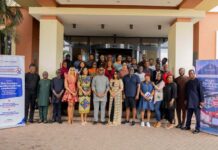The house of representatives yesterday approved President Bola Tinubu’s request to take an additional $347 million (about N530, 289,988,103.00) external loan under the federal government’s 2025–2026 borrowing plan.
The loan was approved following the consideration and adoption of a report presented by the house committee on aids, loans, and debt management, chaired by Mr Abubakar Nalaraba (APC, Nasarawa) at the plenary session.
The request was contained in a letter read on the House floor by the speaker, Mr Abbas Tajudeen.
Justifying the loan request, the president said when the borrowing plan was transmitted to the parliament, the lead arranger for financing only had financing commitments of up $700 million from lenders, stressing that the shortfall in the financing was covered by export credit agencies.
He said it was necessary to increase the value of the financing for the project by $47 million to ensure it aligns with the loan size agreed in the finance documents for the project,” the President said in the letter.
The president also said $300 million was needed for the Nigerian universal communications access project, a landmark telecommunications initiative aimed at bridging the digital divide through the deployment of 7,000 telecommunications towers across hard-to-reach rural dwellings.
Tinubu said the project was inadvertently omitted in the computation of the borrowing plan.
He said the projects under the revised borrowing plan were selected based on rigorous economic evaluations and their projected contribution to national development goals, including job creation, skill development, promotion of entrepreneurship, and poverty reduction.
He further noted that the inclusion of the revised projects in the borrowing plan would enable financial closure and support timely implementation.
The house referred the request to the joint committee on finance, aids, loans and debt management for further legislative scrutiny.
Premium Times reports that the committee in its report provided a detailed justification for the additional loan and the broader borrowing plan.
The committee, according to the paper, disclosed that the Nigeria Universal Communications Access Project, a $300 million initiative targeting the deployment of 7,000 telecom towers in underserved communities, was inadvertently left out of the initial plan. The project is deemed vital to bridging the digital divide and aligning with the President’s Renewed Hope Agenda.
The loan, according to the committee, will help ensure financial closure and timely project execution.
The projects were selected based on positive economic evaluations and their potential to spur employment, entrepreneurship, and poverty alleviation.
Priority sectors include education, primary healthcare, railway infrastructure, security, agriculture, power generation, housing, and digital connectivity.
The borrowing will come from development partners offering concessional terms, low-interest rates, grace periods, and long repayment timelines which support Nigeria’s development agenda sustainably.
Flagship projects, including Hope Health, Education Governance Project – $1.5 billion, fibre optics network rollout – $980 million, sustainable power & irrigation project – $500 million and rural access and agricultural markets project scale-up – $500 million
These initiatives, according to the report, are expected to create millions of jobs, reduce food inflation, and strengthen foreign exchange earnings.
The Committee emphasised that despite the additional loans, Nigeria’s debt profile remains sustainable, with a debt-to-GDP ratio of about 50 per cent, still within the internationally accepted threshold of 56 per cent. As of 2025, Nigeria’s public debt stands at over ₦145 trillion.
The report also highlighted progress made by the Tinubu administration in reducing debt service-to-revenue ratio from over 90 per cent to less than 70 per cent, and projected further fiscal consolidation following the enactment of the Nigerian Tax Act 2025, which is expected to boost revenue by over 18 per cent year-on-year from 2026.
The loans, according to the committee, are spread across multiple development partners and concessional sources, thereby minimising short-term pressure on debt servicing obligations.
The committee noted that 12 states – Abia, Bauchi, Borno, Gombe, Kaduna, Katsina, Lagos, Niger, Oyo, Sokoto, Yobe, and Zamfara – are expected to benefit from various components of the loan for projects in infrastructure, clean energy, waterways, education, and healthcare.
Following its review, the committee recommended approval of the revised borrowing request, bringing the total external borrowing facility under the 2025–2026 plan to $21,890,647,912, €2,193,856,324.54, ¥15,000,000,000; grand component €65,000,000.
In a unanimous vote, the lawmakers approved the recommendations.

























































